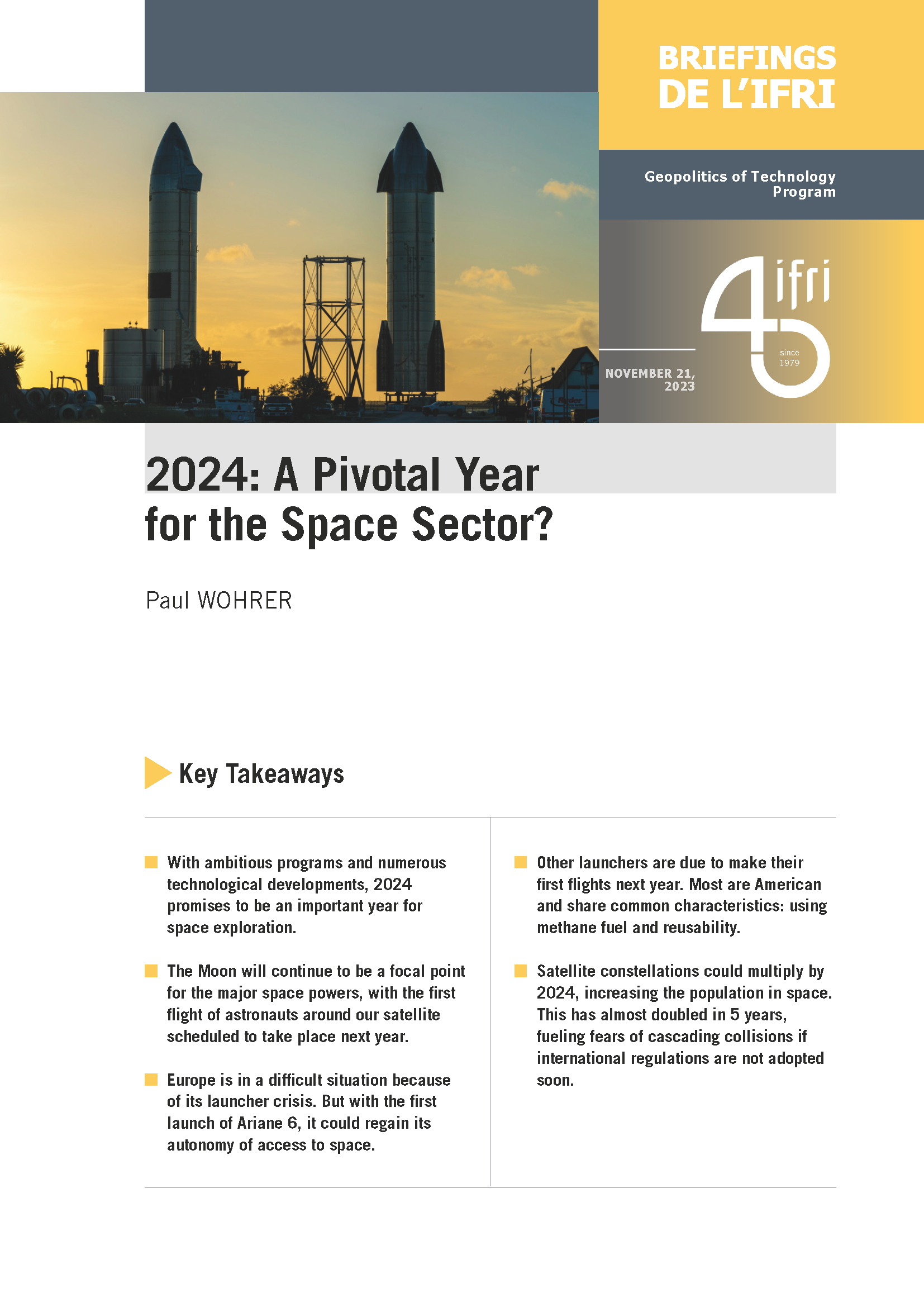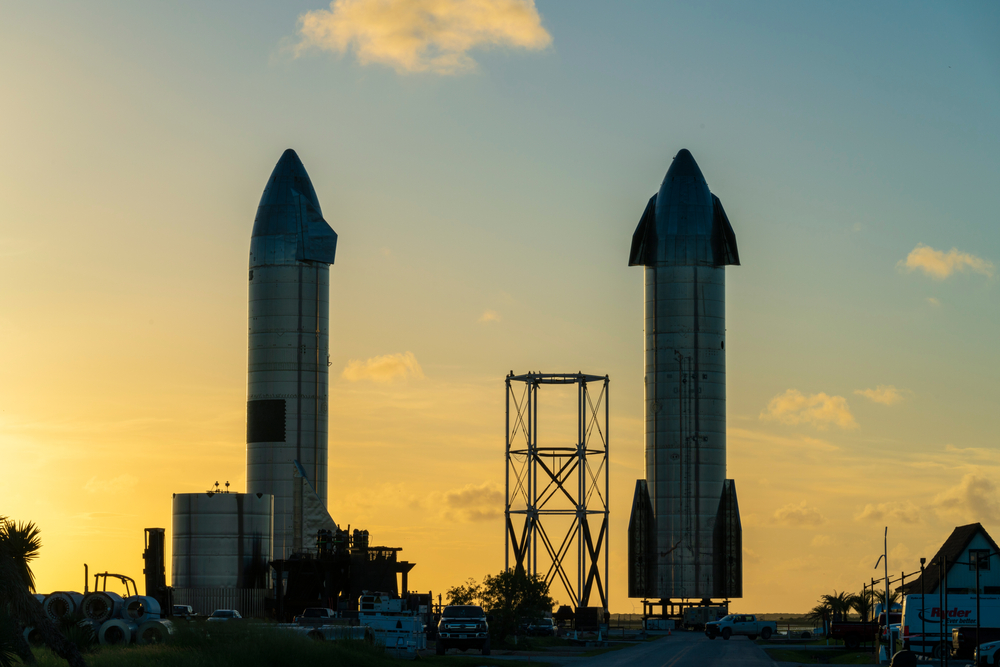2024: A Pivotal Year for the Space Sector?

2024 could be a pivotal year for space exploration. New launchers are set to make their first flight, satellite constellations and other trends promise to redefine the way space is explored and exploited.

The year 2024 promises to be an important one for space exploration, with ambitious programmes and numerous technological developments.
The Moon will remain the focal point for the major powers, the first flight of astronauts around our satellite being scheduled for next year.
Meanwhile, Europe, which has been in severe difficulties as a result of a crisis in the launcher industry, could regain its autonomy in terms of access to space with the first launch of Ariane 6. Other space launchers are scheduled to make their first flights next year, most of them American, reusibility becoming a key feature.
Satellite connectivity constellations could multiply by 2024, boosting the number of objects in space. This population has almost doubled in five years, fuelling fears of chain collisions if international regulations are not adopted soon.

Available in:
Regions and themes
ISBN / ISSN
Share
Download the full analysis
This page contains only a summary of our work. If you would like to have access to all the information from our research on the subject, you can download the full version in PDF format.
2024: A Pivotal Year for the Space Sector?
Related centers and programs
Discover our other research centers and programsFind out more
Discover all our analysesRegulatory Dynamics and Tensions in the Space Sector: Towards and Americanization of Space Law?
The development of space law has gradually evolved from a top-down normative dynamic dominated by the founding impetus of the UN to a bottom-up normativity driven by national and industrial practices. This evolution is now accompanied by growing normative competition, raising the risk of an Americanization of space law and prompting the question of a European response.
The Sustainability of Space Operations: An Opportunity for European Leadership?
As space becomes a key arena for power projection strategies, while facing growth and diversification of orbital activities, the concept of “space sustainability” is emerging as a new framework of analysis for space governance.
The “Huawei Saga” in Europe Revisited: German Lessons for the Rollout of 6G
While the European Union attempted to coordinate a collective response through its 5G Toolbox in Europe’s 5G infrastructure, member states diverged significantly in balancing political, economic, and technological considerations. Germany, despite its economic ties to China and status as Europe’s largest telecom market, only reached a tentative agreement in July 2024—one that appears largely symbolic.
European Startups and Generative AI: Overcoming Big Tech Dominance
Europe is at a crossroads. Faced with the domination of American Big Tech across the entire generative Artificial Intelligence (AI) value chain, from foundation models to cloud infrastructure, distribution channels, and open source, it risks long-term technological and economic decline. Yet generative AI also represents a major opportunity for economic transformation, with a potential value estimated at 1.5 times France’s gross domestic product (GDP). To turn it into a driver of renewal, Europe must move beyond the illusion of total technological independence and instead build an ecosystem that leverages Big Tech resources while strengthening its own innovation capabilities.












